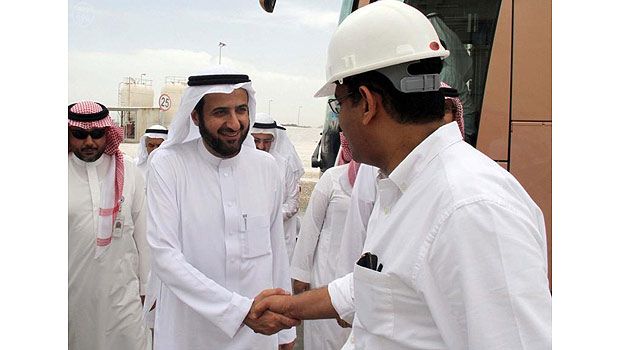
Madinah, April 13: The Ministry of Commerce and Industry has formulated a plan to check any rises in commodity prices and is closely monitoring the markets to end any monopoly of goods, Minister Tawfiq Al-Rabiah has said.
Al-Rabiah, who is also the chairman of the board of directors of the Saudi Industrial Property Authority (Modon), made the remarks following a tour of the industrial city in Madinah.
ring to ensure sufficient supply of goods so as to close the door for any price rise and to prevent monopoly of commodity trade," he said.
Al-Rabiah said the sufficient supplies of commodities in the market would keep prices low, prevent monopoly, and end unfair competition among traders.
"There is continuous cooperation between the ministry and the Customs Department as well as the Consumer Protection Society to keep prices at a reasonable level that will not harm either the merchant or the consumer," he said.
He said the top priority for the ministry was the protection of consumers and added that in case of manufacturing defects, the ministry would address the manufacturers about it.
Al-Rabiah said the industrial city in Madinah was a promising city that would attract industries and provide more jobs to Saudi nationals.
He said the ministry had a plan to expand the city and provide enough spaces for factories in collaboration with the Madinah municipality.
He said by the end of the year the basic infrastructure of the city would be completed, including the provision of enough quantities of water, sewage projects and others costing between SR80 million and SR90 million.
He described the city as one oft the fastest growing industrial cities in the Kingdom and said so far it had projects worth about SR170 million.







Comments
Add new comment